Hello my mad lovelies – it has been a very, very long time since I have published anything on here. I find writing while in bipolar remission (that’s my term, not scientific) can be challenging because I struggle to find topics to write about. However, some exciting news for those of you who don’t know – I’m pregnant! I’m currently 6 months pregnant with a little girl and this journey has inspired a litany of topics surrounding mental health, pregnancy and motherhood that I hope to start posting on here more regularly over the next few months.
To get things started again, this is the basis for a talk I gave on September 12, 2019 as part of the Concordia University Centre of Clinical Research’s Lived Experience conversation series.
This was an opportunity for me to share my story with students in the clinical psychology program at Concordia, as well as faculty members and members of the public. I was paired with Concordia psychology faculty member and CCRH core member, Andrew Ryder, who did a Q&A with me and presented a more scientific perspective on bipolar disorder.
Enjoy!
We, as a society, talk a lot about balance. Achieving work-life balance. Eating a balanced diet. Balance seems to be the ultimate wellness goal. Now, I’m about to try and achieve the most difficult balancing act – and honestly, I’ve been told it’s impossible – motherhood and work-life balance!
But, what does balance mean when you have an illness whose thrust is destabilize you? Is balance even possible and what does it look like?
I have been diagnosed with Bipolar Disorder II. Although there are 4 basic types of Bipolar Disorder, I’m going to break down the two more common ones: Bipolar I & Bipolar II. And I’m sure Professor Ryder can fill in some more technical gaps.
It’s really important for me to explain that Bipolar Disorder has nothing to do with multiple personalities. I’m not two different people. It’s always me, but just more extreme depending on the episode.
Bipolar Disorder is characterized by extreme moods – highs and lows – that are normally broken down into manic episodes and depressive episodes. The main difference between Bipolar I and II is the severity of the manic episodes. The basic symptoms are: high mood, inflated self-esteem, decreased need for sleep, racing thoughts, “risky behaviour” like excessive drinking, drug use or spending. A full blown manic episode will severely interfere with a person’s life. Some people with Bipolar DIsorder I experience psychosis and hallucinations – this is something that I have never experienced.
As someone with Bipolar II, I experience what is called hypomania which, is essentially a less severe version of a full-blown manic episode. For me, a hypomanic episode causes me to talk really fast, I’m extremely excitable, I become very goal oriented and driven, I’m more more energetic, I sleep less and generally tend to be more extroverted than normal. It’s usually when I commit to a bunch of social events or take on a lot of projects that “balanced me” would recognize as a bad idea and overloading myself.
You’re probably thinking hypomania symptoms sound useful and not terrible, And honestly, you’re not wrong. When I was in graduate school, hypomania served me very well. For a while, I was one of the few students in my class that managed to keep up with readings, got a head start on papers and got my PhD applications in on time.
But the idea that hypomania is useful is because we live in a culture that praises “busynes.” Being busy is the ultimate achievement of adulthood. If you’re not run ragged, forgetting to eat and pulling all nighters – you aren’t doing enough. We idolize men like Twitter CEO Jack Dorsey who claims that fasting is a way to “hack” the human body.

Presenting at the CCRH Lived Experience conversation series on September 12, 2019
But the idea that hypomania is useful is because we live in a culture that praises “busynes.” Being busy is the ultimate achievement of adulthood. If you’re not run ragged, forgetting to eat and pulling all nighters – you aren’t doing enough. We idolize men like Twitter CEO Jack Dorsey who claims that fasting is a way to “hack” the human body.
So, the idea that hypomania is a desirable state isn’t unfounded. North American society practically encourages the state. Even when I find myself on the borderline of a hypomanic state I look at my calendar and wonder: “Would this be the worst time for this to happen?”
And then my husband or psychiatrist always reminds me of the depression that is inevitably going to follow. The light and speed of hypomania always ends with a crash. Then I’m drowning in the languid darkness of depression. And for me, these depressive episodes usually span weeks and months. I have had to take extended absences from work. During graduate school, I had to take a semester off which stopped me from graduating on time to attend that PhD program I so desperately wanted to attend during my hypomanic state.
And because we idealize the hypomanic state, whether consciously or subconsciously, we judge the depressed person. What do you mean you can’t summon the energy to brush your teeth? How dare you not make my birthday party? What do you mean you’re too sad to come to work? And I’m not going to lie, most of these questions I have repeatedly asked myself. Berating myself during a depressive episode for not being able to accomplish basic tasks. They are recorded messages being replayed over and over in my brain until I drive myself crazy.
In total I have been through three hospitalizations for depression. I’ve seen more psychiatrists and psychologists than I can keep track of. I’ve taken anti-depressants, sleeping pills, anti-anxiety medications, anti-psychotics and anti-convulsants. I’ve gone through in-patient and out-patient treatment. I’ve hurt myself physically, I’ve hurt others emotionally, and I’ve thought about suicide way too often.

Q&A with Dr. Andrew Ryder of the CCRH and psychology faculty member at Concordia Univeristy
Bipolar Disorder is a chronic illness, but it doesn’t make me any less capable than someone without it. Despite what TV and movies depict, I’m not deranged or dangerous. I just have to navigate my life a little differently, and despite my struggles with my illness, wonderful things have happened in my life. I completed two university degrees. I travelled. I got married. I moved provinces. I got a job I excel in. I have great friends. I became a mental health advocate. And this year, I’m going to be a mom for the first time.
Despite all of the successes and accomplishments of my life, all the things that neurotypical people consider a full life, I still have faced stigma because of Bipolar Disorder. The funny thing is, I’ve rarely encountered stigma from family, friends or colleagues. Of course there’s always the off colour joke, but nothing that I felt was directly targeted at me. I’ve never lost a professional opportunity because of my illness. Stigma has never come from the layperson. The biggest offenders have been mental health professionals, people who should know better.
One psychiatrist told me I was pretending to have a mental illness because he found me too well dressed and clean to be suffering from depression. Another said that my self-harm and suicidal thoughts were just attention-seeking behaviour. Another told me, I didn’t actually have Bipolar Disorder but that my real problem was that I needed to laugh more, have more sex and love my husband.
But, the one that sticks with me the most, is when a psychiatrist told me I shouldn’t ever have children. Obviously, I’ve chosen to ignore that piece of “advice.” This happened at my first consultation with this doctor and I had no idea it would be one of the worst visits of my life. We went through the retelling of my mental health history, he took notes and when I was fishing for a tissue he asked suddenly: “Are you thinking of becoming pregnant?”
At the time, I hadn’t thought about it much. I was in my mid-twenties and felt like I had a ton of time to make that decision. He ran through the risks to a fetus on my current medication regimen. And then he laid the low blow, “Do you know that your disease is genetic? Your child could be like you.”
His words knocked the wind out of me. I don’t really remember what happened after that. I just know I left his office in tears.
It took me years to get over what he said and even though I’m pregnant now, I still wonder: how will I feel if my daughter is diagnosed with bipolar disorder? I wouldn’t wish the disease on her, but my life isn’t horrible.
Despite the issues I’ve had with psychiatrists and after years of trial and error, I have found an amazingly compassionate psychiatrist who, when I was ready, helped me achieve my goal of becoming a mother. But like I said earlier, having Bipolar Disorder means navigating life a little differently. Due to my age and marital status, my current psychiatrist reminded me that if I ever decided to get pregnant he’d need 9 months to a year to change my medications to ensure they were safe to a fetus.
When I asked him: “Is it even a good idea for me to be pregnant having bipolar disorder?”
He just laughed and said, “I could run a daycare as a side business from all my bipolar patients with babies.”
Getting pregnant took time, patience and planning. My psychiatrist warned against unplanned pregnancies because of the risk to the fetus, but he also acknowledged, sometimes it happens and not to panic. Working with him for the past 4 years, I feel like I have made the most progress in managing my illness and it’s mainly because I’m working with someone I trust.
So, I come back to my original question, is balance possible with bipolar disorder? Honestly, I’m skeptical. But, to be fair, I’m skeptical of the whole concept of balance regardless if you have a mental illness or are neurotypical. I think life is all about give and take. Sometimes certain areas of your life require more energy and other things are going to suffer.
The reality is, my psychiatrist put me on preventative leave from my job 2 weeks ago. The stress of being pregnant, other life circumstances, coupled with regular work stress were putting me into a precarious position. I had no desire to become unpregnant and the anxiety of being a first time mom wasn’t going to go away. So, the only thing we could cut out was work. And as someone who is extremely dedicated to my job, type-A, perfectionist – this was a struggle. I suffered for almost 2 months before I agreed to go on leave.
The lesson here is that at the end of the day, for me balance is unachieveable. But, I can set boundaries that help better filter my energy. That does mean saying no to opportunities even if they seem like one in a million, taking a mental health day or leave of absence from work. These boundaries help maintain my mental health and allow me to live a life that I’m happy with.
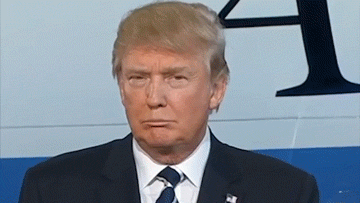
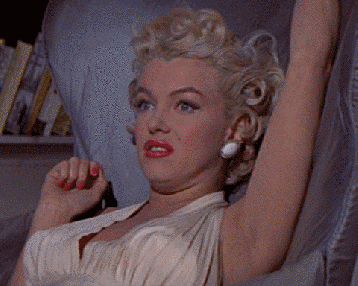 Now, I’ll be the last person to rush to Trump’s defense. I find him a reprehensible individual. His policies are a joke. His xenophobia, racism, bigotry, and misogyny are frightening. I’m also not necessarily ruling out the fact that he might be suffering from some sort of personality disorder either. But we need to stop the arm chair diagnosing and stop calling him mentally ill in the media.
Now, I’ll be the last person to rush to Trump’s defense. I find him a reprehensible individual. His policies are a joke. His xenophobia, racism, bigotry, and misogyny are frightening. I’m also not necessarily ruling out the fact that he might be suffering from some sort of personality disorder either. But we need to stop the arm chair diagnosing and stop calling him mentally ill in the media.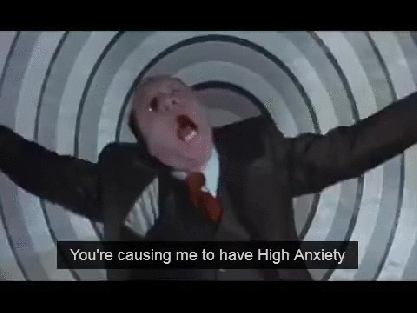
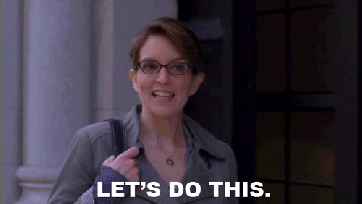 I’ve been stable for three months. My medication is working. I sleep well. I’m working out. I’m socializing. I’m cooking and eating like a normal person. I’m happy and healthy.
I’ve been stable for three months. My medication is working. I sleep well. I’m working out. I’m socializing. I’m cooking and eating like a normal person. I’m happy and healthy.
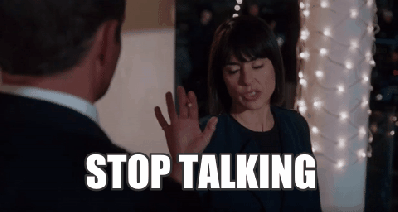 Now, I’m not suggesting this particular individual had any ill intention behind their word choice. It was a casual remark, made in jest. Had they known about my situation, maybe they wouldn’t have made the remark. But that’s sort of the point. We shouldn’t only care about the language that we use when we personally know someone who may be hurt or offended by our words. We should be consciously choosing our words to ensure that no one is hurt or offended by them — whether we know their situation or not.
Now, I’m not suggesting this particular individual had any ill intention behind their word choice. It was a casual remark, made in jest. Had they known about my situation, maybe they wouldn’t have made the remark. But that’s sort of the point. We shouldn’t only care about the language that we use when we personally know someone who may be hurt or offended by our words. We should be consciously choosing our words to ensure that no one is hurt or offended by them — whether we know their situation or not. But it never stops there. It was inevitable. Reports started coming out that Omar Mateen was
But it never stops there. It was inevitable. Reports started coming out that Omar Mateen was  So can we just stop blaming mental illness on mass shootings already? Mass shootings are a complex subject. The truth is, we’re too quick to jump on the “of course he was crazy” bandwagon. Instead why don’t we talk about how issues like misogyny, bigotry, and radical religious beliefs (Christian or Islamic) are often at the root of these mass shootings? Because it’s just easier to say that “he was crazy” and continue on with your day.
So can we just stop blaming mental illness on mass shootings already? Mass shootings are a complex subject. The truth is, we’re too quick to jump on the “of course he was crazy” bandwagon. Instead why don’t we talk about how issues like misogyny, bigotry, and radical religious beliefs (Christian or Islamic) are often at the root of these mass shootings? Because it’s just easier to say that “he was crazy” and continue on with your day.